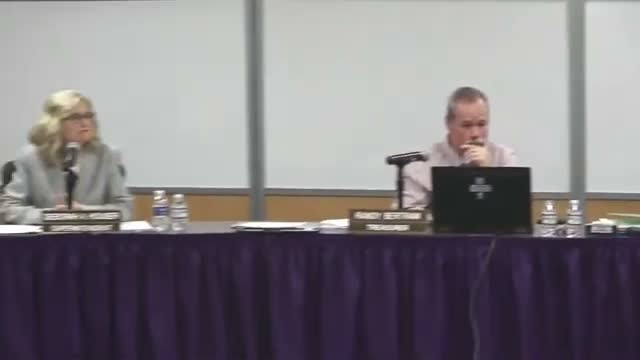Middletown City treasurer presents five-year forecast showing near-term carryover but longer-term deficits
Get AI-powered insights, summaries, and transcripts
Subscribe
Summary
Treasurer Sam Bertram told the Middletown City School District board the district expects a roughly $40.6 million carryover this year and a $5.7 million gain, but projected deficits begin in 2028–29 and could grow without policy changes or revenue shifts.
Treasurer Sam Bertram presented the district’s five-year financial forecast on Nov. 10, reporting a beginning cash balance of $34.94 million and a projected carryover of about $40.6 million for the current fiscal year.
Bertram told the board that the district expects a gain of about $5.7 million this year and that revenue currently is composed of roughly 58% state funds, about 35–39% local taxes and about 7% other revenue. He said the district has taken ESSER-related reductions early, shifting about $2.5 million into the general fund this year.
Why this matters: despite a healthy short-term carryover and above‑average state revenue trends since 2022, the forecast shows that without changes the district could shift to deficit spending by 2028–29, with projected shortfalls rising to roughly $8.1 million in 2029 and more than $13 million by 2030 under the presentation’s assumptions.
Key details from the presentation include payroll and benefits representing the majority of expenditures (Bertram noted personnel and benefits run about 64% of spending, with payroll alone about 47% this year), benefits projected to grow about 8% during the forecast period, and capital and supplies costs rising as ESSER funds are exhausted.
Bertram also flagged enrollment and policy risks: he said post‑pandemic enrollment rose in 2023 and has since begun to drop, in part because of voucher uptake and scheduling changes, and he warned that proposals to change property taxes at the state level could materially alter local revenue. "If they come out and say, ‘Okay, no more property taxes in Ohio, residential property taxes,'" Bertram said, "one number is going to go away." He added that the district is in a relatively strong position now — "we're in the top 30 to 40% currently" among districts — but that the later years of the forecast are less certain.
Board members asked clarifying questions about the carryover and contingency; when asked whether the cash balance equates to the rainy day fund, Bertram replied that the carryover is effectively the cash balance and provides operating days in reserve. He also said some projected impacts — such as recent homestead exemption adjustments enabled by House Bill 96 — reduced the district’s rebate by roughly $803,000 for one year and cost about $167,000 in bond funds this cycle.
Next steps: The board approved the forecast presentation as part of the finance agenda for the meeting; Bertram said the five-year forecast will be revisited in February and August, per the changed reporting schedule.
